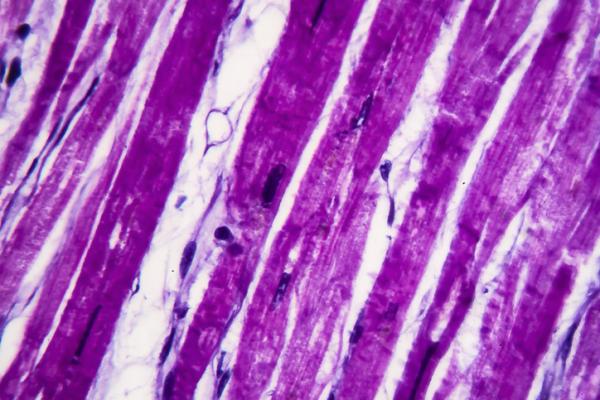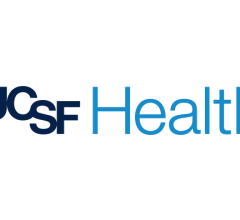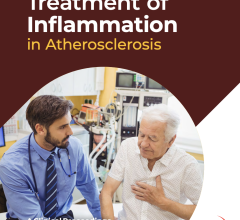
The American College of Cardiology (ACC) and the American Heart Association (AHA) today released a new clinical guideline for effectively managing individuals diagnosed with hypertrophic cardiomyopathy (HCM). Image courtesy: Getty Images
May 9, 2024 — The American College of Cardiology (ACC) and the American Heart Association (AHA) today released a new clinical guideline for effectively managing individuals diagnosed with hypertrophic cardiomyopathy (HCM). The guideline, according to a written statement shared here, reiterates the importance of collaborative decision-making with patients who have HCM and provides updated recommendations for the most effective treatment pathways for adult and pediatric patients.
“Incorporating the most recent data, this new guideline equips clinicians with the latest recommendations for the treatment of HCM,” said Steve R. Ommen, MD, FACC, medical director of the Mayo Hypertrophic Cardiomyopathy Clinic and chair of the guideline writing committee. Ommen added, “We’re seeing more evidence that patients with HCM can return to their normal daily lives with proper care and management.”
New HCM Guidelines
Updated recommendations in the guideline reflect recent evidence about HCM treatment and management including new forms of pharmacologic management; participation in vigorous recreational activities and competitive sports; and risk stratification for sudden cardiac death (SCD) with an emphasis on pediatric patients.
The guideline includes recommendations for adding cardiac myosin inhibitors, a new class of medication for patients with symptomatic obstructive HCM who do not get adequate symptom relief from first-line drug therapy. Symptomatic obstructive HCM is a type of HCM where the heart muscle is restricted. Cardiac myosin inhibitors are the first FDA-approved class of medication to specifically target the thickening of the heart muscle instead of treating the symptoms, however, they are monitored under the FDA’s Risk Evaluation and Mitigation Strategies (REMS) program, which may create additional steps and time for both the clinician and the patient. Clinicians require special training to prescribe the medication, and patients require regular screenings.
“These new drugs offer an alternative for patients who have failed first-line therapy and either want to delay or possibly avoid more aggressive options,” Ommen said. “With this guideline, we’re providing clinicians with point-of-care guidance about effectively using this first-in-class, evidence-based treatment option and improving their patients' quality of life.”
About Hypertrophic Cardiomyopathy (HCM)
HCM is an inherited cardiac condition most often caused by a gene mutation that makes the heart muscle too thick (hypertrophy), which impairs its ability to adequately pump blood throughout the body. HCM affects approximately 1 in every 500 individuals; however, a significant portion of cases remain undiagnosed because many people do not exhibit symptoms. Occasionally, the first time HCM is diagnosed is after a sudden death. People who do have symptoms may experience episodes of fainting, chest pain, shortness of breath or irregular heartbeats.
In addition to medication treatment, growing evidence is showing that the benefits of exercise outweigh the potential risks for patients with HCM. Low to moderate intensity recreational exercise should be part of how HCM patients manage their overall health. For some HCM patients, competitive sports may be considered in consultation with HCM clinical specialists.
“Recommendations for physical activity continue to evolve with research,” Ommen said. “As part of a healthy lifestyle, patients with HCM are now encouraged to engage in low-to-moderate intensity physical activities. We’re seeing how vigorous physical activities can be reasonable for some individuals. With shared decision-making between the clinician and the patient, some patients may even be able to return to competitive sports.”
Poorly managed HCM may lead to many complications including SCD. The new guideline includes recommendations for assessing and managing the risk of SCD by establishing clear risk markers. Guidance for integrating risk markers with tools to estimate an individual patient’s SCD risk score is recommended to aid in the patient/clinician shared decision-making regarding implantable cardioverter defibrillator placement, incorporating a patient’s personal level of risk tolerance and specific treatment goals including quality of life.
Several recommendations in the new guideline extend to pediatric patients. A specific pediatric risk stratification for SCD is emphasized, with risk calculators specific to children and adolescents and stressing the importance of HCM centers with expertise in pediatrics. The new guideline extends exercise stress testing recommendations to include children diagnosed with HCM to help determine functional capacity and provide prognostic feedback.
The 2024 AHA/ACC/AMSSM/HRS/PACES/SCMR Guideline for the Management of Hypertrophic Cardiomyopathy is published simultaneously today in the Journal of the American College of Cardiology, JACC, and American Heart Association's journal, Circulation.
In addition to the American College of Cardiology and the American Heart Association, the guideline was written in collaboration with and endorsed by the American Medical Society for Sports Medicine, the Heart Rhythm Society, the Pediatric & Congenital Electrophysiology Society, and the Society for Cardiovascular Magnetic Resonance.
More information: www.acc.org, www.heart.org
Related content:
Part 1: Hypertrophic Cardiomyopathy: One on One with a Cardiovascular Research Leader
Part 2: Hypertrophic Cardiomyopathy in Focus
“ONE ON ONE” WITH CHRISTINE SEIDMAN, MD, FACC, ON HYPERTROPHIC CARDIOMYOPATHY


 February 04, 2026
February 04, 2026 









